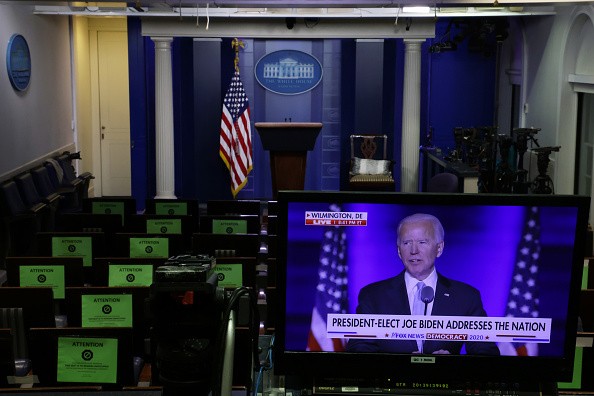US Election Explainer: What Happens Between Now and President-Elect Biden’s Inauguration?

Election results are out and the American people have chosen former vice president Joe Biden in this year's election, but what happens from now until inauguration?
Days after Election Day, some votes still need to be counted.
Other than that, there are also election-related lawsuits filed over some ballot counting so much is going to be expected before inauguration day.
It is also important to note that while many major news outlets have already called the election for Biden, results still aren't set in stone.
Protocols are still supposed to be met before Biden's inauguration.
As CNN said, voters may have gone to the polls on Election Day but they didn't actually select the President directly.
That is a job done by the Electoral College.
As laid out in the Constitution, Americans are technically voting for 538 electors who will vote in their respective states once popular votes are counted and certified.
The Electoral College and state will still need to follow a set of well-established protocols, noted The Wall Street Journal.
Here's a timeline of events to look out for and what the Trump campaign can do to continue contesting the results.
Vote Counting (November 4 - November 24)
After Election Day, mail ballots that were postmarked on November 3 in every state but were received late will still be counted.
Most states adhere to a one-to-two day gap between Election Day and vote counting.
But in Washington, mail-in ballots can be received for as late as November 23.
A day after Washington's final day of counting mail ballots, on November 24, election results will be certified.
Certifying Results (November 10 - December 11)
Certifying results varies between states, but it starts a week after Election Day.
The deadlines can still be adjusted if there is a recount in the state like in an event of extremely close results.
Several states also allow for automatic recount if the difference of votes between candidates falls within a certain margin.
More legal challenges are also definitely going to occur, especially since incumbent President Donald Trump's campaign already filed charges in states like Wisconsin and Georgia.
According to a report from BBC, the Trump campaign is already looking for top lawyers who will lead the charges.
Charges may even go up to the Supreme Court, but experts think the lawsuits are unlikely to change the election results.
More or less, certification occurs within the month of November and all states, except for California, are expected to get certified results by December 8.
Elector Assignment and Vote Cast (December 8 and 14)
December 8 is considered a "safe harbor" to determine who won the elections as states assign electors.
It is the date stated in the Electoral Count Act by which states are also expected to resolve any outstanding issues like recount requests.
Governors are supposed to create certificates that verify the winner of the election and the slate of electors.
On December 14, they meet in the capitals of their respective states and vote to finalize their state's election results. The votes have to arrive in Washington on December 23.
Electoral Votes Arrive in Washington and Counted (December 23 and January 6)
Certified electoral votes from states have to be at the Capitol Hill on December 23.
On January 6, those votes will be counted.
The House and Senate will meet in the House chamber where President of the Senate, Vice President Mike Pence, will preside over the session.
Electoral votes will be read and counted in alphabetical order by two appointees from both the House and the Senate.
Tallies will then be given to Pence, who announces the results and opens the floor for objections.
Inauguration Day (January 20)
According to the Constitution, the new term of office starts on January 20 at noon.
The ceremony will take place in Washington DC.
President-elect and vice president-elect will take their oath of office administered by the Supreme Court chief justice.
An exception to this timetable is, if a president dies in office or resigns where their vice president will be sworn in as soon as possible.
Subscribe to Latin Post!
Sign up for our free newsletter for the Latest coverage!

















